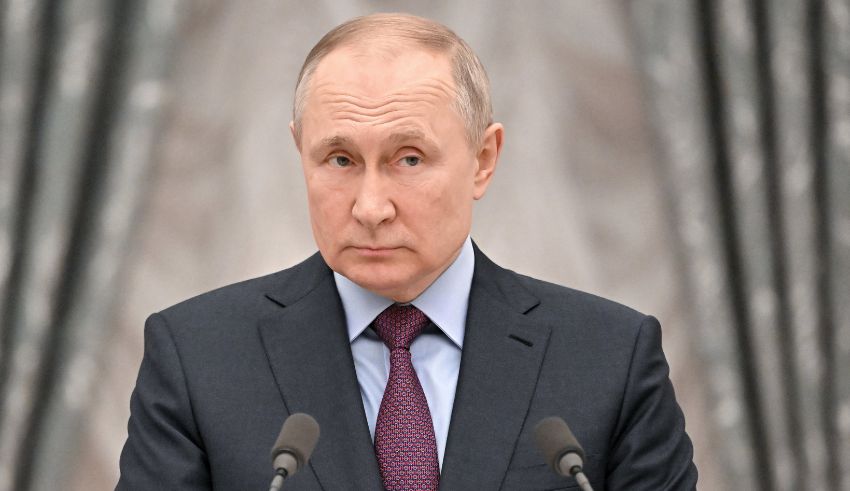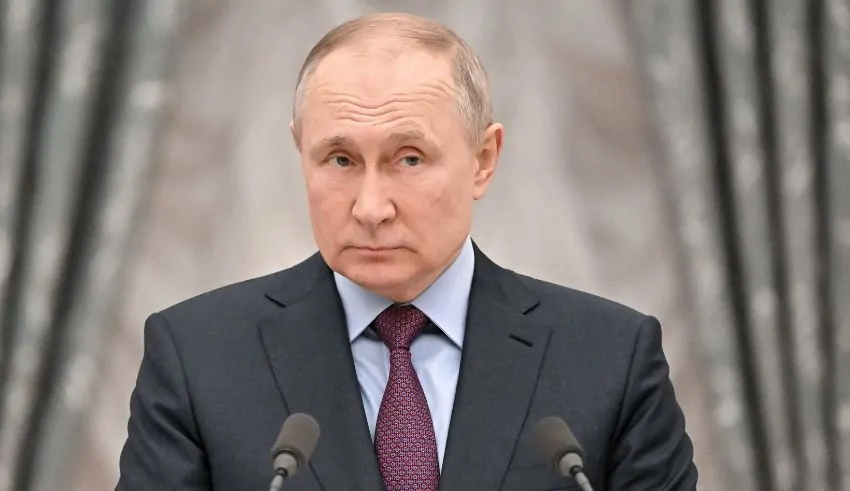

(C) President of Russia
With a bold and divisive action, the Kremlin has seized more than £76 million from Google’s Russian accounts, reallocating these resources to support Vladimir Putin‘s war in Ukraine via means of propaganda projects. Court documents reveal this dynamic, which underlines the rising tension between global IT companies and autocratic governments. The seizure of assets by Russian courts is a component of a more comprehensive strategy meant to control information flow and punish companies who obey international sanctions against Russia.
Legal Prelude: Court decisions and asset seizure
Based on Russian court rulings, Google’s confrontation with the Kremlin grew increasingly forceful. The Russian court asked three well-known Russian TV channels—RT, Tsargrad, and NFPT—to pay Google noteworthy damages. Renowned for their pro-Kremlin points of view, these channels were removed from YouTube and their Google accounts were deleted—actions most likely in response to international sanctions and the channels’ dissemination of state propaganda.
Google lost a lot of money. Under Kremlin control, the Russian court system ruled Google owed enormous sums to these outlets. With its unsustainable financial state, Google’s Russian affiliate thus declared bankruptcy in 2022. Still, the scenario did not end there. By means of its bailiffs, the Kremlin obtained around $100 million (approximately £76 million) from Google Russia’s accounts—a sum significantly above the court-ordered repayment of $12.5 million (one billion roubles) at the time.
Google expressed dismay in its legal records at the extent of asset seizure and said: “The bailiffs seized more than $100 million of Google Russia’s assets, even though the amount apparently due under the judgement at the time was less than $12.5 million (one billion roubles).” This discrepancy raises questions about the real reasons behind the asset seizure since it suggests that the objectives of the Kremlin could surpass basic legal restitution.
The most concerning aspect of this asset seizure is the Kremlin’s payment of propaganda efforts supporting Russia’s military activities in Ukraine out of the acquired funds. Among the biggest beneficiaries of these funds was Tsargrad, a media outlet under oligarch Konstantin Malofeev’s control who staunch supporter of Putin and his global ambitions.
After obtaining one billion roubles from the pilfers, Tsargrad made public its wish to provide this money for Russia’s conflict in Ukraine. This action highlights the Kremlin’s strategy of supporting its military activities and influencing public opinion on the war by means of the resources of foreign technological companies. By concentrating these resources on pro-war propaganda and also try to modify international impressions, the Russian government hopes to raise domestic support for its activities in Ukraine.
The Kremlin’s strategies have evolved dramatically since it now supports war propaganda from acquired resources. It reveals the degree of preparedness of the Russian government toward using its justice system to confiscate assets from multinational companies and reroute them into geopolitics. This approach sends a message to other multinational companies operating in Russia as well as punishes companies like Google for following UN sanctions.
Reacting to the asset seizure, Google launched a number of legal battles involving multiple nations. Among other countries, the giant of technology is trying to prohibit Russian broadcasters from seizing its assets in Serbia, Turkey, and South Africa. These legal fights are vital for Google since they reflect the efforts of the firm to protect its global operations from the general consequences of the forceful legal actions of the Kremlin.
One particularly interesting case is that of Tsargrad’s owner, Konstantin Malofeev, who has sued Google elsewhere. Malofeev is looking for more financial claims against Google; his media outlet gained most from the seized funds. Russian courts claim Google owes Tsargrad an eye-watering 32.8 billion roubles (£273 million), significantly more than the Kremlin’s initial outlay. This ruling complicates Google’s legal situation even more and highlights the possibilities for similar cases to arise abroad.
According to Google’s legal records, fines and penalties imposed by Russian courts are not only unprecedented but also arbitrary, aiming to limit information access on Google’s platforms and punish the company for implementing international sanctions. Looking for more positive outcomes, the internet behemoth’s defense strategy revolves around contesting these rulings in international tribunals.
Geopolitics, Technologies, and More General Implications
The acquisition of Google’s resources by the Kremlin and subsequent use of these funds to support war propaganda have broad effects on the confluence of geopolitics, technology, and international law. This case emphasizes the challenges worldwide technology companies have when doing business in politically sensitive regions where court systems can be under control to advance the objectives of despotic governments.
The ongoing legal disputes between Google and Russian businesses also reflect the greater geopolitical confrontation between Western democracies and totalitarian states such as Russia. As they get more and more involved in these geopolitical conflicts, multinational corporations have to confront challenging legal and ethical concerns that can have significant impact on their international operations.
Moreover, the actions of the Kremlin raise issues about the direction of information availability and the role technology performs in influencing public opinion. Authoritarian governments can fund propaganda and seize assets from companies like Google, therefore compromising the integrity of world information networks and control the narratives that reach their people and the international community.
Conclusion: traversing a complicated and perilous terrain
The circumstances regarding Google’s asset seizure by the Kremlin highlights the dangerous and complex terrain multinational technology companies have to negotiate in the contemporary culture. As the struggle for control over information gets more intense, companies like Google find themselves front lines of a bigger geopolitical war with huge ramifications for world stability.
Google’s legal disputes will most likely have an impact on the behavior of global corporations in areas under totalitarian governments. It will also show how effectively worldwide digital companies can protect their resources and ensure the free flow of knowledge in a society becoming more split apart. This case reminds us especially of the challenges that arise when geopolitics, international law, and technology interact when it is still under development.
Cebu Pacific celebrates the delivery of its very first aircraft for 2025, the 459-seat Airbus A330neo, delivered at Ninoy Aquino…
March 29, 2025, will deliver the first solar eclipse of the year when observers from numerous continents can witness this…
Chinese President Xi Jinping invited 40 foreign business executives to Beijing on Friday to boost investor confidence and restore stable…
Thailand is set to host Group B of the AFC Women’s Asian Cup 2026 Qualifiers where India, Mongolia, Timor Leste…
The unveiling of an instrument that may symbolize a step toward updating the country’s financial identity is the celebration of…
Big investment company KKR is close to finishing its purchase of Japanese medical equipment manufacturer Topcon as private equity firms…
This website uses cookies.
Read More